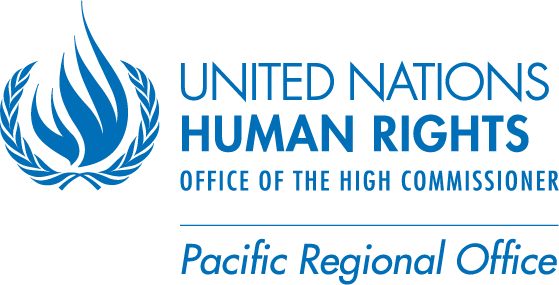
3rd UN PACIFIC FORUM ON
BUSINESS AND HUMAN RIGHTS
21-22 November 2022
Grand Pacific Hotel, Suva (Fiji) and Online
Scroll down
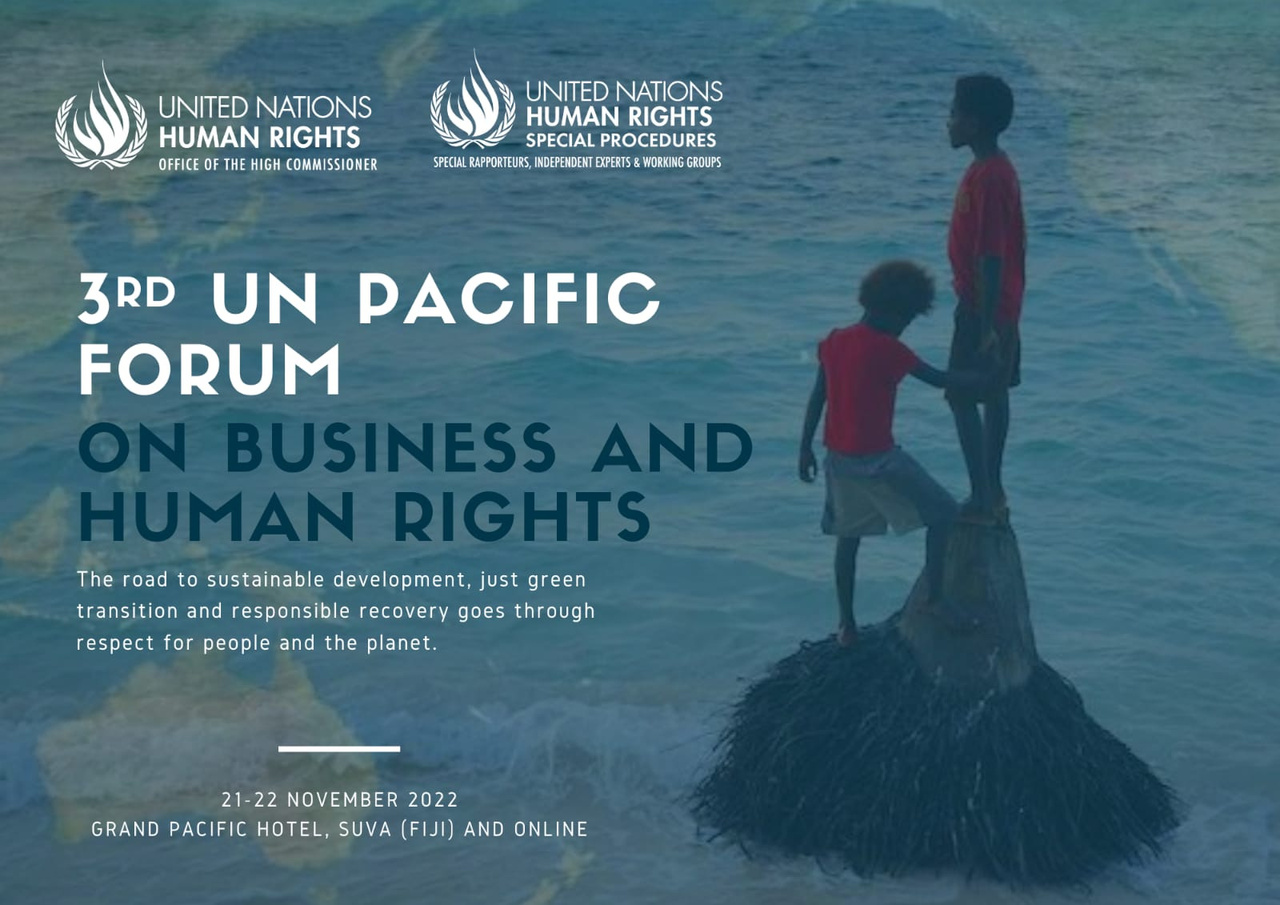
About
We invite businesses, academia, governments, civil society and other stakeholders to sign up and join our 3rd Pacific Forum on Business and HumanRights, online or in person in Suva, Fiji. Let's build capacity and continue a regional dialogue about BHR standards in the Pacific, promote responsible business practices and use of natural resources.
Register your participation here.
The 3rd UN Pacific Forum on Business and Human Rights aims to facilitate a multi-stakeholder dialogue between business enterprises, governments, civil society and academia that will foster joint capacity building, stocktaking, learning, good practices and specific policy, legislative and programmatic action to raise further awareness of the United Nations Guiding Principles on Business and Human Rights (UNGPs), encourage their implementation, including through National Action Plans, due diligence policies and legislation, strategies to advance the decent work agenda and other initiatives to protect human rights within the context of business activities.
The Forum will build on the 2nd UN Pacific Forum on Business and Human Rights, which took place in a hybrid format on 22-24 November 2021. The 2021 Forum featured country-specific sessions to assess challenges and opportunities for States and business enterprises in the Pacific region as well as thematic sessions on mandatory human rights due diligence, the role of NHRIs in promoting compliance with the UNGPs, climate change, gender equality, labour law and practices, human rights defenders and new technologies.
Participants in these sessions highlighted the need to enforce existing human rights standards, including labour and environmental laws in order to eliminate the most serious abuses, including child and forced labour, to address specific business-related human rights challenges in the informal economy, to support businesses mainstreaming human rights due diligence throughout their operations, and to ensure access to effective remedy for victims.
Objectives
The 3rd UN Pacific Forum on Business and Human Rights aims at:
- Raising further awareness and building capacity of various stakeholders around BHR standards, especially the UNGPs;
- Taking stock of the key challenges, opportunities and progress made in the Pacific in implementing the UNGPs, including through the development of national action plans;
- ·Exploring linkages between business and human rights, the 2030 Agenda for Sustainable Development, and issues such as climate change and COVID-19 recovery;
- ·Facilitating the regional exchange of good practices in implementing the UNGPs and the SDGs;
- ·Encouraging peer-learning amongst States, national human rights institutions (NHRIs), international and regional organisations, business enterprises, national employers’ organisations, trade unions, academic institutions, civil society organisations (CSOs) and human rights defenders in the Pacific region;
In addition to discussing thematic challenges and opportunities common to the Pacific region, the 2022 Forum will provide space for country-specific dialogue and follow up, and offer an opportunity to encourage Pacific States to develop National Action Plans on Business and Human Rights.
Programme
Monday, 21 November 2022
| ||
8:30 – 9:00
| Registration
|
|
9:00 – 10:00
| Welcome and Opening Remarks
| Speakers:
Ms. Heike Alefsen, OHCHR Regional Representative
Ms. Pichamon Yeophantong, Vice-Chair, Working Group on Business and Human Rights
Mr. Sanaka Samarasinha, UN Resident Coordinator to Fiji, Solomon Islands, Tonga, Tuvalu and Vanuatu
Mr. Howard Politini, PIPSO Representative, Fiji
Ms. Natasha Khan, Chair, Pacific Human Rights Defenders Network
|
10:00 – 10:30
| Tea break
| |
10:30 – 12:00
| The UN Guiding Principles: moving from policy to practice
| Speakers:
Mr. Robert McCorquodale, WEOG Member, Working Group on Business and Human Rights
Ms. Elizabeth Fanning, Lead ESG Stakeholder Advisory, Australia and New Zealand Banking Group
Mr. Tevita Naikasowalu, Commission of Ecological and Social Justice
Moderator: Prof. Justine Nolan, Faculty of Law and Justice, University of New South Wales
|
12:00-13:00
| UNGPs 10+: A roadmap for the next decade of business and human rights
| Speakers:
Ms. Latileta Gaga Kurabui, General Secretary, National Union of Factory and Commercial Workers (Fiji)
Ms. Vanessa Zimmerman, CEO and Founder, Pillar Two
Ms. Maria Garcia Torrente, Human Rights Officer, Special Procedures Branch, Office of the High Commissioner for Human Rights
Moderator: Ms. Pichamon Yeophantong, Vice-Chair, Working Group on Business and Human Rights
|
13:00 – 14:00
| Lunch
| |
14:00 – 15:30
| Labour migration and modern slavery in context of the Pacific
| Speakers:
Mr. Matt Coghlan, Senior Manager, Walk Free
Ms. Pefi Kingi, Governance Advisor, South Pacific Islander Organisation Ms. Saunoamaali'i Karanina Sumeo, Equal Employment Opportunities Commissioner, New Zealand Human Rights Commission Ms. Saina Tomi, Organiser, Samoa First Union
Moderator: Mr. Solomon Kantha, Chief of Mission, IOM UN Migration Agency in Fiji
|
15:30 – 16:00
| Tea break
| |
16:00 – 17:30
| Climate change, business and human rights
| Speakers: Prof. Surya Deva, Director of the Centre for Environmental Law, Macquarie Law School Ms. Fyfe Strachan, Policy Director, Jubilee Australia Research Centre Moderator: Ms. Georgina Lloyd, UNEP
|
| ||
Tuesday, 22 November 2022
| ||
9:00 – 10:30
| Development finance and human rights: A multi-stakeholder dialogue
| Speakers:
Mr. Philip Martin, Adviser on Environmental Social Safeguards, Australian Infrastructure Financing Facility for the Pacific (AIFFP), DFAT
Mr. Benjamin Michel, Policy Analyst, OECD Centre for Responsible Business Conduct
Ms. Harpreet Kaur, Business and Human Rights Specialist, UNDP Regional Bureau of Asia and the Pacific Moderator: Ms. Pichamon Yeophantong, Vice-Chair, Working Group on Business and Human Rights
|
10:30 – 11:00
| Tea break
| |
11:00 – 12:30
| Rising food prices and food insecurity in the Pacific region
| Speakers:
Ms. Itziar González, FAO
Ms. Seema Nareeta Shandil, Chief Executive Officer, Consumers’ Council of Fiji
Peter Royce, Chief Operating Officer, New World IGA
Ms. Ana Albuquerque, Adventist Development and Relief Agency (ADRA)
Moderator: Ms. Xiangjun Yao, Sub-Regional Coordinator for the Pacific, FAO
|
12:30 – 13:30
| Lunch
| |
13:30 – 15:00
| Responsible business conduct in the extractive and minerals sectors
| Speakers:
Mr. Marcos A. Orellana, Special Rapporteur on toxics and human rights
Ms. Keren Adams, Human Rights Law Centre
Mr. Darren Grant, Country Manager, Dome Gold Mines Ltd
Moderator: Mr. Nick Bainton, Sustainable Minerals Institute, University of Queensland
|
15:00 - 15:30
| Tea break
| |
15:30 – 17:00
| Access to a remedy in cases of human rights abuses perpetrated by business enterprises
| Speakers:
Mr. Joshua Cooper, Director, Hawai’i Institute for Human Rights
Ms. Louchrisha Hussain, Citizens’ Constitutional Forum (CCF)
Mr. Adam Dubas, New Zealand National Contact Point
Moderator: tbc
|
17:00 – 17:45
| Closing Session: The way forward in implementing the UN Guiding Principles in the Pacific
| Speakers:
Ms. Pichamon Yeophantong, Vice-Chair, Working Group on Business and Human Rights
Ms. Heike Alefsen, OHCHR Regional Representative
|
Forum Format
The 3rd UN Pacific Forum on Business and Human Rights will take place in a hybrid form on 21-22 November 2022, online and in-person at the Grand Pacific Hotel in Suva, Fiji.
Fiji-based participants and participants from other Pacific countries who can cover the costs associated with their travel and accommodation will meet in Suva. Other participants will join online. A link to the event will be sent to all participants ahead of the event.
Background
The road to sustainable development, just green transition and responsible recovery goes through respect for people and the planet.
As the authoritative global framework for preventing and addressing adverse business-related human rights impacts, the United Nations Guiding Principles on Business and Human Rights (UNGPs) provide a powerful tool that can be deployed to realise the potential of responsible business as core contribution to Our Common Agenda set out by the United Nations Secretary-General and to meet the major global challenges of our times: tackle climate change, prevent ecological disaster, achieve the Sustainable Development Goals (SDGs) and create a new social contract that addresses the inequalities of income and opportunity and persisting gender and racial discrimination that have been amplified during the COVID-19 crisis.
In November 2021, the UN Working Group on Business and Human Rights (WGBHR), mandated by the Human Rights Council to promote dissemination and implementation of the UNGPs worldwide, took stock of the first decade of implementation of the UNGPs and launched its Roadmap for the next decade of business and human rights.
The stocktaking highlighted that the UNGPs have led to significant progress by providing a common framework for all stakeholders in managing business-related human rights risks and impacts. Yet, considerable challenges remain when it comes to coherent implementation with respect to ensuring better protection and prevention of adverse human rights impacts, with particular attention to the most marginalised and vulnerable, and to ensuring access to remedy for harms that occur.
Building on the stocktaking’s analysis of achievements to date and existing challenges and opportunities, the UNGPs 10+ Roadmap for the next decade sets out key action areas for the road ahead for progressively getting closer to fuller UNGPs realisation. Each action area identifies priority goals for what needs to happen and supporting actions to be taken by States, business enterprises and other stakeholders to progressively realise business respect for human rights and access to an effective remedy when business-related human rights abuses occur.
Business and human rights in the Pacific
The Pacific region has made some progress in implementing the UNGPs and promoting business respect for human rights. A number of countries in the region have developed or are developing legislation, policies and educational programmes to prevent violent against women and girls in the private sector, improve gender representation in the context of business activities, for instance by supporting women’s micro-enterprises, promote access to employment for persons with disabilities and combat trafficking and child labour.
Despite these initiatives, the Pacific region continues to face a wide range of systemic challenges that obstruct business respect for human rights and undermine sustainable development, including limited progress in the implementation of the UNGPs, corruption, gender-based violence, climate change, unsustainable tourism, irresponsible use of natural resources, exploitative and abusive working practices, and barriers to access to remedy.
No State in the region has completed a National Baseline Assessments (NBA) or a National Action Plan (NAP) on Business and Human Rights, and awareness of the UNGPs remains limited. Only four States in the region (Australia, Fiji, New Zealand and Samoa) have a functioning national human rights institution (NHRI), and their work on BHRs is limited due to resource constraints or the lack of a specific mandate.
The COVID-19 pandemic has decimated economies in the Pacific region. It has increased unemployment rates, pushed people into poverty and healthcare facilities to breaking point, disrupted supply chains, affected normal business operations, enhanced risks of gender-based violence, and dried up tourism in the Pacific region. In addition, the COVID-19 pandemic has increased inequalities and social exclusion, and has had a disproportionately adverse impact on the most discriminated and marginalised individuals and communities in society. These unprecedented challenges, which will continue to affect countries and business enterprises in the region in the coming years, have undermined the ability of States and businesses to comply with their respective obligations and responsibilities under the UNGPs.
The Pacific region remains extremely vulnerable to – and disproportionately affected by – climate change, environmental pollution and biodiversity loss, which directly and indirectly threatens the effective enjoyment of a wide range of human rights, including the rights to life, health, housing, food, water and sanitation, and education, to name but a few. Governments and businesses across the region have made limited progress in addressing the worsening environmental crises, with a growing number of vulnerable individuals and communities facing significant barriers in seeking effective remedies and holding businesses accountable for human rights abuses.
The unsustainable use and exploitation of natural resources continues unabated across the Pacific region. The extractive industry, logging, fishing and tourism are among the business sectors that continue to have a long-term adverse impact on the human rights of affected individuals and communities and the environment in which they live. Furthermore, human rights violations committed by private security companies in the context of the activities referred to above threatens the rights of human rights defenders, indigenous leaders, youth activists and civil society organisations, contributing to the shrinking of civic space and limiting access to effective remedies for the human rights violations perpetrated by business enterprises.
Workers in the Pacific region continue to be subject to labour rights abuses and unfair work practices. Despite some progress, the lack of adequate labour legislation or inconsistencies in its enforcement continue to expose a large number of workers to exploitative practices, including human trafficking, modern slavery and sexual exploitation, which have an adverse impact on disadvantaged individuals and groups such as women, children and migrant workers. Business-related human rights abuses are particularly widespread in the informal economy, in which most Pacific workers are employed.
To address these challenges, ensure just transitions and rights-based COVID-19 recovery, and achieve the Sustainable Development Goals (SDGs), it is imperative for all relevant stakeholders to work together in a regional setting to prevent, mitigate and remediate the adverse impact of business activities on human rights.
Speakers
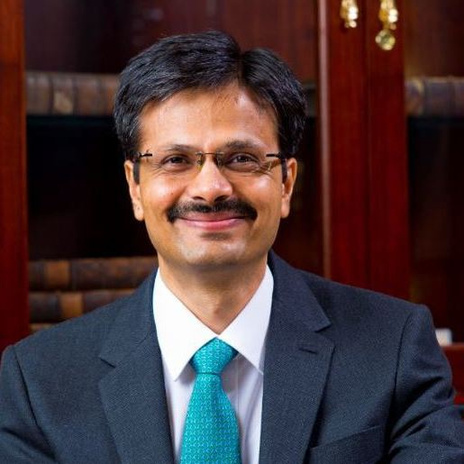

Speaking online: Surya Deva
Professor at the Macquarie Law School and Director of the Centre for Environmental Law
Mr. Surya Deva is a Professor at the Macquarie Law School, University of Macquarie, Sydney. He researches in the areas of business and human rights, India-China constitutional law, international human rights law, and sustainable development. Deva has published extensively in these areas, and has advised UN agencies, governments, multinational corporations, and civil society organisations on issues related to business and human rights .
Speaking online: Pichamon Yeophantong
Vice-Chairperson
UN Working Group on
Business and Human Rights
Ms. Pichamon Yeophantong is Associate Professor and Head of Research at the Centre for Future Defence and National Security, Deakin University. She also leads the Responsible Business Lab and the Environmental Justice and Human Rights Project, which are funded by an Australian Research Council Fellowship. As a political scientist, Pichamon teaches and publishes field-based research on business and human rights, and the political economy of sustainable development in the Asia-Pacific.
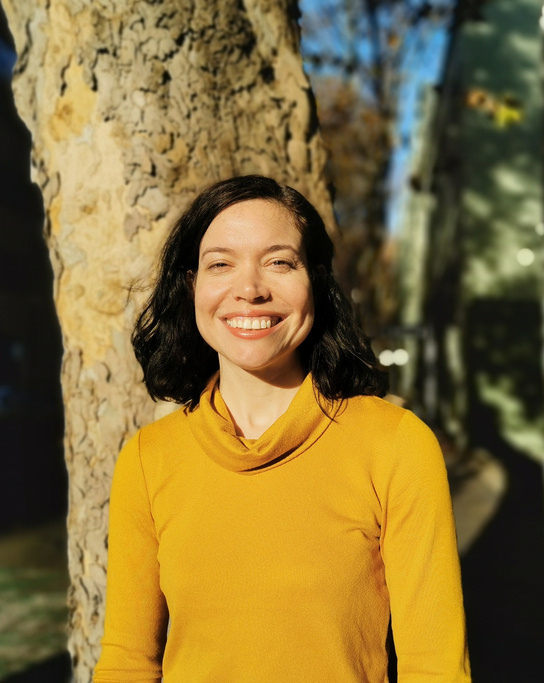
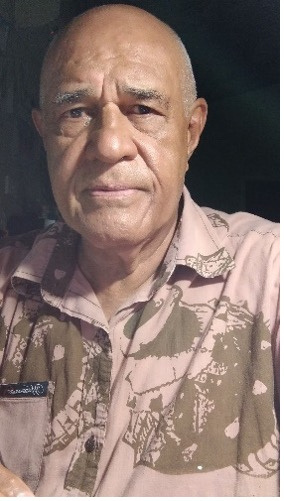
Speaking online: Fyfe Strachan
Policy Director at Jubilee Australia Research Centre
Fyfe Strachan is Policy Director at Jubilee Australia Research Centre, an organisation engaged in research and advocacy to promote economic justice for communities in the Asia-Pacific region and accountability for Australian corporations and government agencies operating there. Fyfe's work focuses on the nexus of climate and debt justice, and on the risks of extractive models of development in the Asia-Pacific region. She has recently co-authored the report Twin Clouds on the Horizon: averting a combined climate and debt crisis in the Pacific through locally-delivered climate finance, a co-publication with Caritas Australia. Fyfe has 15 years’ experience in policy, advocacy and research and has previously worked in policy and advocacy roles in Vietnam and Ghana. Fyfe holds a Bachelor of Arts/Bachelor of Laws and a Master of Development Studies (Social Research).
Speaking online: Howard Politni
Consulting leadership, and entrepreneurship
Howard Politini has had a 47-year work life in several careers including Teaching, Quality Management Leadership, Military, Management & Aviation Security and Human Resources and Rural Banking. He continues to serve on numerous boards across State Owned Enterprises, Private Sector and Faith Based organizations whilst consulting and mentoring in people development, leadership, and entrepreneurship.
Howard was recently awarded the 50th Independence Anniversary Medal in honor of his many years of service to the nation in different fields. He is of Tongan and Fijian origin married to a Samoan has four children and six grandchildren. Since retirement from fulltime employment Howard utilizes his time for his Certified Coaching, Speaking, Leadership Training and Mentoring activities. He is one the longest serving board member and immediate past chairperson of the Pacific Islands Private Sector Organisation.
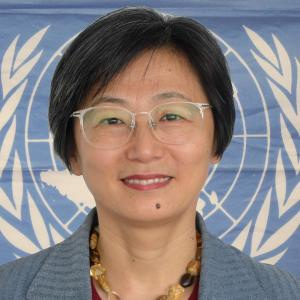
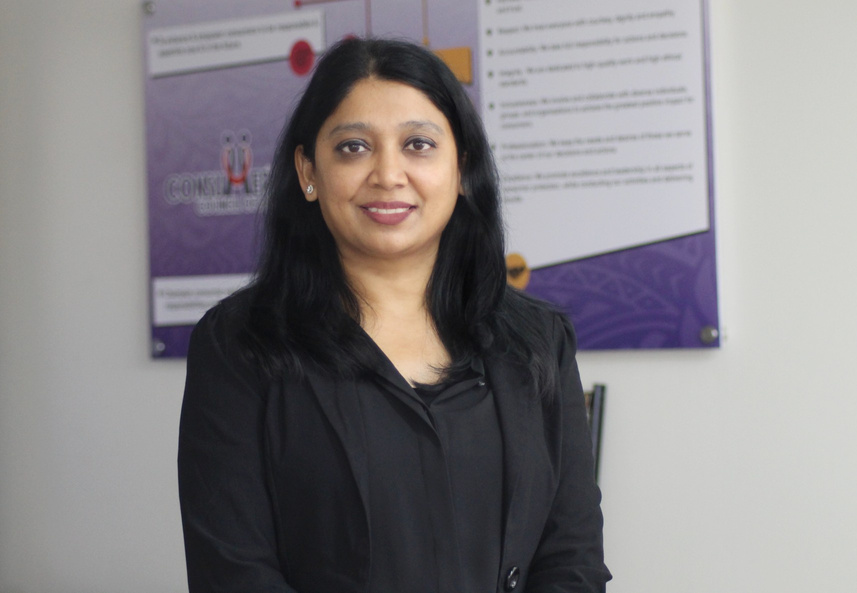
Speaking online: Xiangjun Yao
FAO Representative and Subregional Coordinator for the Pacific Islands
Ms Xiangjun Yao assumed her role as the FAO Sub Regional Coordinator for the Pacific in 2020. She oversees FAO’s work in providing policy advisory and technical assistance to its 14 Member Countries to improve food security, income-earning opportunities in agriculture, fisheries and forestry, and increasing resilience of small farmers and producers in the Pacific. She joined FAO Headquarters in June 2011 and has held leading roles in several technical divisions/offices within FAO.
Speaking Seema Shandil
CEO
Consumer Council of Fiji
Ms. Seema Shandil is the CEO of Consumer Council of Fiji. She had a distinguished career with extensive knowledge in the field of Research, Economics, Project Management and Education. Ms. Shandil has more than 20 years of work experience and has worked for some prestigious organizations like Fiji National Provident Fund as the Manager Research and Product Development, as an Economist at Reserve Bank of Fiji and as an Academia with Fiji National University and a Teacher with the Ministry of Education. She is a consumer champion and will continue working towards improving the marketplace in the best interests for consumers in Fiji.
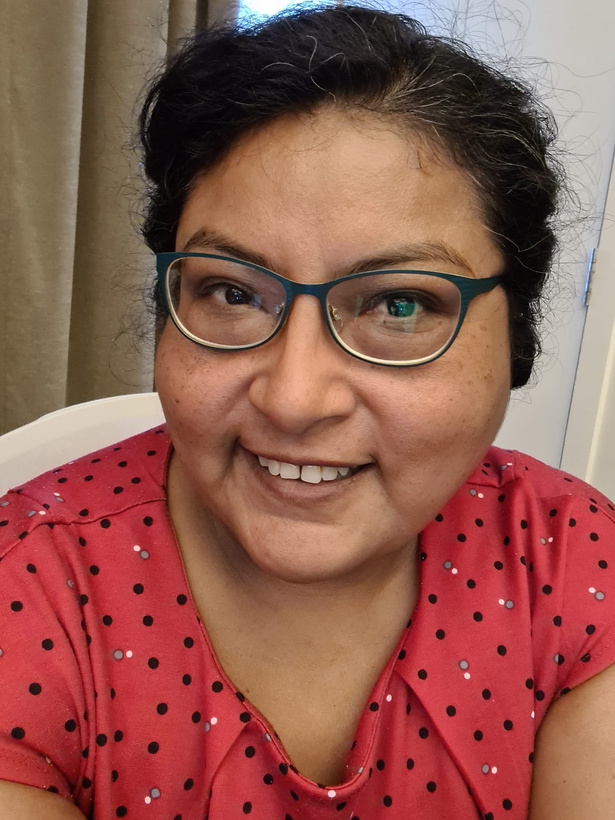
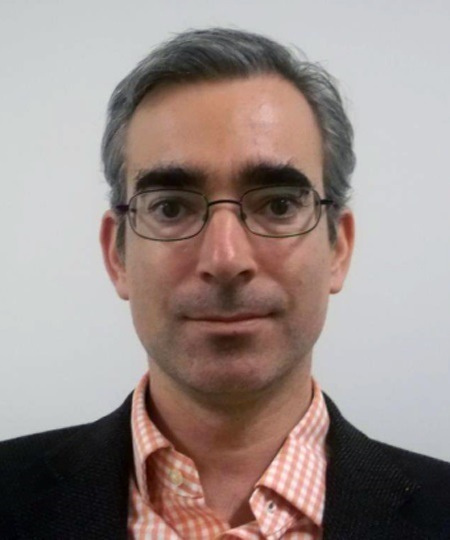
Speaking online: Regional Technical Advisor of the South Pacific Adventist Development and Relief Agency- ADRA
Ana is the Regional Technical Advisor of the South Pacific Adventist Development and Relief Agency- ADRA.
She has been Implementing Development and Humanitarian projects in South America, East Africa and South Pacific to response refugee crisis, Disasters and Covid 19. She was recently deployed to Ukraine to support the program interventions. ADRA focus on Food Security and agriculture at community and school level.
Ana is a certified CaLP Trainer (Cash Learning Partnership), she has a Master’s Degree in Social Politics of Children’s Rights and Bachelor degree in Education. Ana is from Peru but living in Fiji for more than 6 years, she is married to Nicholas Williams.
Speaking online: Adam Dubas is a Principal Advisor in the Trade and International Team at the New Zealand Ministry of Business, Innovation and Employment
Adam Dubas is a Principal Advisor in the Trade and International Team at the New Zealand Ministry of Business, Innovation and Employment. He currently is the Vice Chair of APEC Sub Committee on Standards and Conformance and the New Zealand National Contact Point under the OECD Guidelines for Multinational Enterprises. Adam also has oversight of New Zealand’s policy positions on tariffs, standards and conformance, supply chains and responsible business conduct.
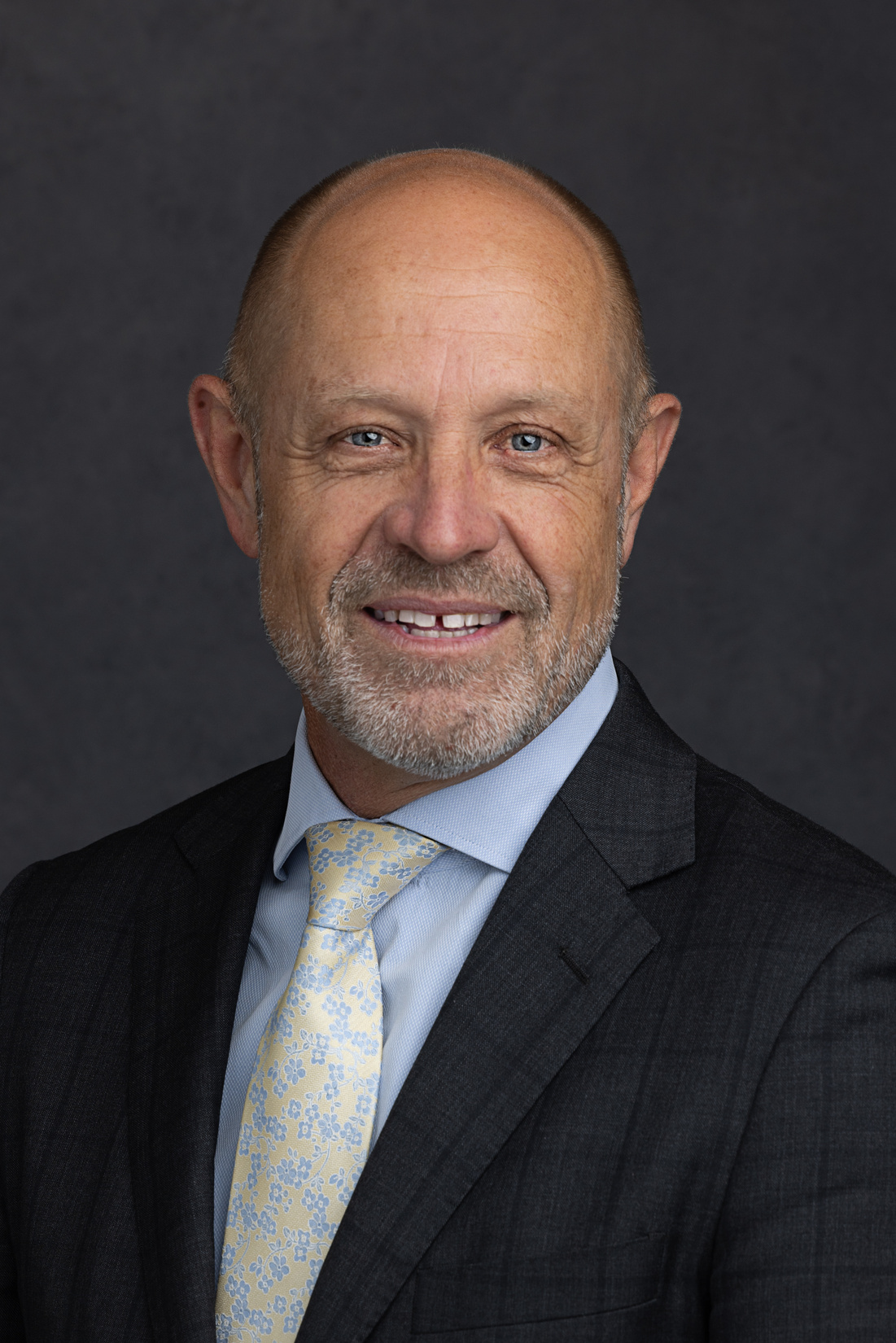
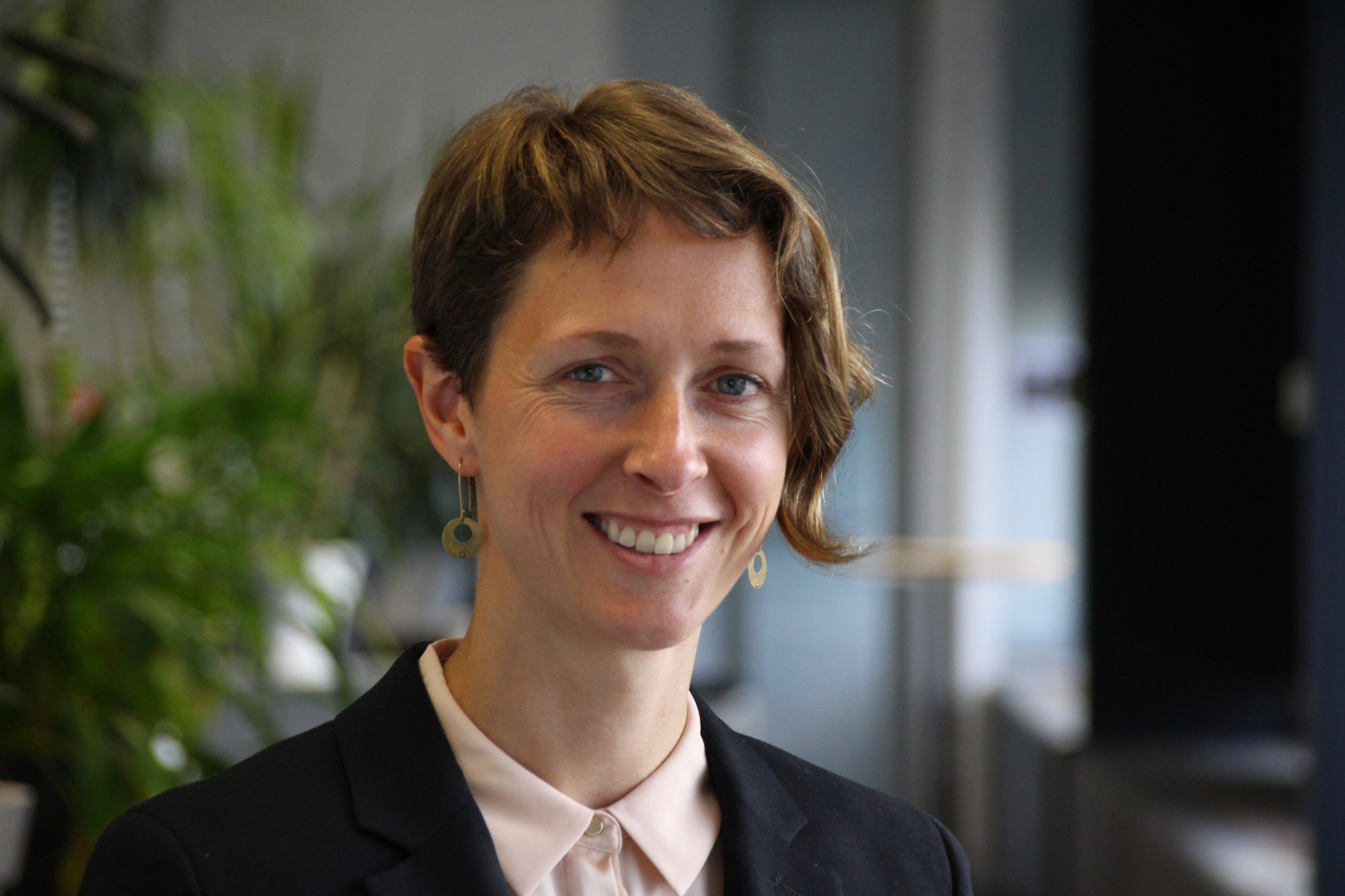
Speaking at venue: Darren Grant
Chartered Accountant
Darren brings over 30 years of commercial experience in finance, project management and human resources to our team. Through a career that commenced with KPMG before gaining international experience with a listed technology company in the UK, Darren’s broad industry experience has progressed to supporting Boards and Board Committees across mining & exploration, emergency services, and independent education. His strategic experience has been established on Finance, Audit, Risk & Compliance, Building & Infrastructure Committees and his capacity to develop high functioning teams across diverse disciplines. With financial and operational oversight of large capital works, Darren offers strong expertise to co-ordinate the mine development and resource management in his role as Country Manager (Fiji).
Darren holds a Bachelor of Business (Accounting) degree, was conferred as a Chartered Accountant in Australia in 1993 and is also a Member of the Australian Institute of Company Directors having undertaken the Company Directors Course in 2019.
Speaking online: Keren Adams is a Legal Director at the Human Rights Law Centre
Keren Adams is a Legal Director at the Human Rights Law Centre where she leads the Centre’s work on business and human rights. Keren has two decades’ experience working as a human rights lawyer and advocate in Australia and internationally. Prior to joining the HRLC, she was a partner at UK law firm Leigh Day, where she litigated a range of landmark human rights cases against UK multinationals in relation to abuses in their overseas operations. Keren is a member of the advisory board of the Australian OECD National Contact Point and has previously advised the Australian Government on the implementation of the UN Guiding Principles on Business and Human Rights. She is currently representing communities in Bougainville in a human rights complaint against Rio Tinto regarding environmental and human rights impacts from the company’s former Panguna copper & gold mine.
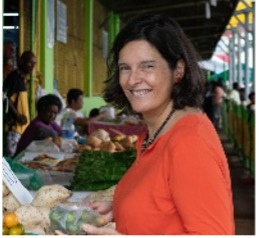
Speaking online: Itziar González
policy officer
FIRST programme
Itziar González is an agricultural engineer from Madrid, Spain with a MSc in Management of Agro-ecological Knowledge and Social Change from the University of Wageningen, the Netherlands. She is currently working as a policy officer with the FIRST programme, a policy assistance facility implemented in partnership by the European Union, the UN FAO and the governments of Vanuatu, Solomon Islands and Fiji. She had previously worked for more than 20 years implementing and providing technical advice to rural development initiatives in South and Central America, the Caribbean and Sri Lanka working for the UN FAO and IFAD, the Spanish Agency for International Development Cooperation (AECID) and several NGOs
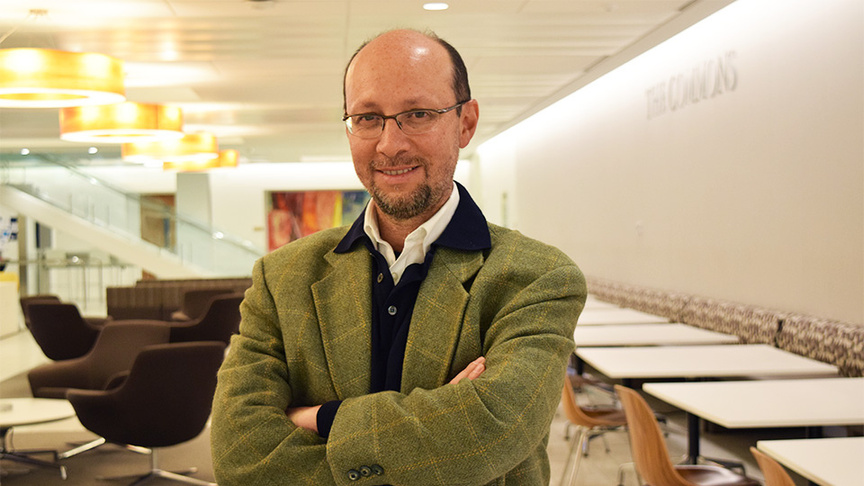
Speaking online: Marcos A Orellana is the United Nations Special Rapporteur on Toxics and Human Rights
Marcos A Orellana currently directs the Global Toxics and Human Rights Project at the American University Washington College of Law. Professor Orellana has lectured in various law schools, including Melbourne, George Washington, Pretoria, Geneva, and Guadalajara. His practice as legal advisor has encompassed work with United Nations agencies, governments, and non-governmental organizations. He has intervened in cases before several international courts and tribunals. Professor Orellana has extensive experience working with civil society and indigenous peoples around the world on issues concerning global environmental justice. He also represented the eight-nation Independent Association of Latin America and the Caribbean in the negotiations of the Paris Agreement on Climate Change.
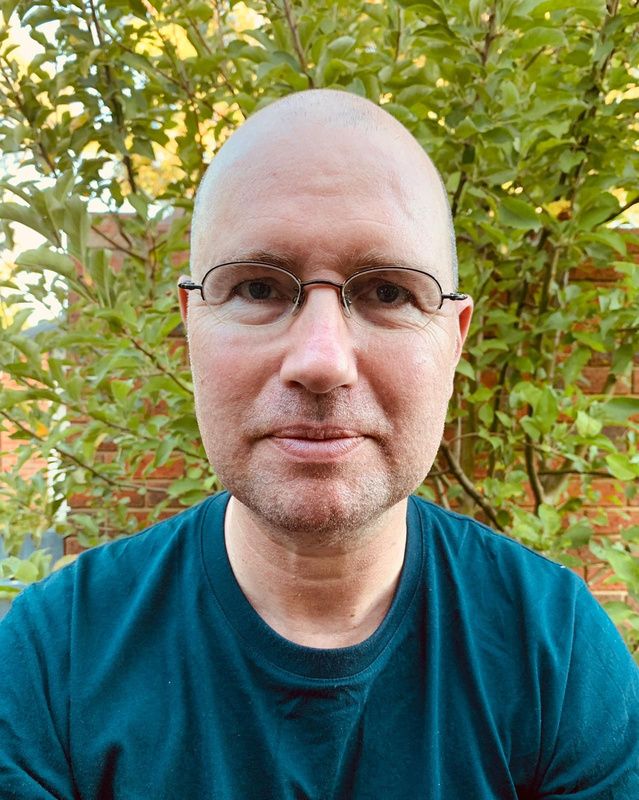
Speaking online: Matthew Coghlan
Senior Manager - Financial Sector
Walk Free
Walk Free is an international human rights group dedicated to eradicating modern slavery in all its forms in our lifetime. Matthew lives in Melbourne and coordinates the Investors Against Slavery and Trafficking Asia-Pacific (IAST APAC) initiative, an investor-led, multi-stakeholder initiative comprising 36 investors representing A$7.8 trillion in Assets Under Management. He supports the delivery of other Walk Free Business Engagement Team projects, such as the Stock Exchange of Thailand, Walk Free and FAST initiative modern slavery guidance and tool, which was launched in December 2022 to support Thai-listed companies completing mandatory sustainability reporting. Before he joined Walk Free, Matthew was a Senior Manager in Deloitte Australia’s Sustainability practice, assisting clients with Australian Modern Slavery Act compliance and advising them on broader human rights and ESG issues. He lived in Southeast Asia for 15 years and worked on a range of governance, economy and health programs.
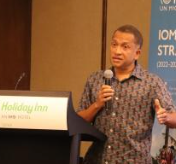
Sanaka Samarasinha
UN Resident Coordinator to Fiji, Solomon Islands, Tonga, Tuvalu and Vanuatu
Sanaka Samarasinha commenced his appointment as the United Nations Resident Coordinator for the Republic of Fiji in 2018, with multi-country coverage of nine other Pacific Island Countries. Sanaka had served as the UN Resident Coordinator and UNDP Resident Representative (RC/RR) in Minsk and UNFPA Representative in Belarus (2013-2018). Before this appointment, Sanaka served in various offices of the UN and UNDP. Before joining the UN, he worked in the legal profession and in journalism, with government, civil society and the private sector in several different countries including the USA, South Africa and India.
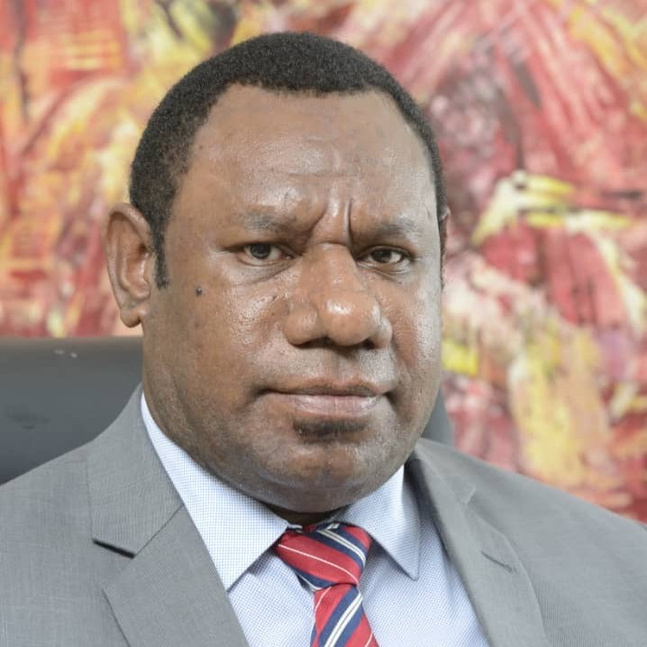
Solomon Kantha
Chief of Mission
Interntaional Organization for Migration (IOM) Fiji
Solomon Kantha is the Chief of Mission for the International Organization for Migration (IOM) in Fiji since July 2020. Prior to this he worked with the Papua New Guinea government as the Chief Migration Officer for the PNG Immigration & Citizenship Authority, worked with IOM in PNG and had a brief stint with the PNG Embassy in Washington D.C., United States.
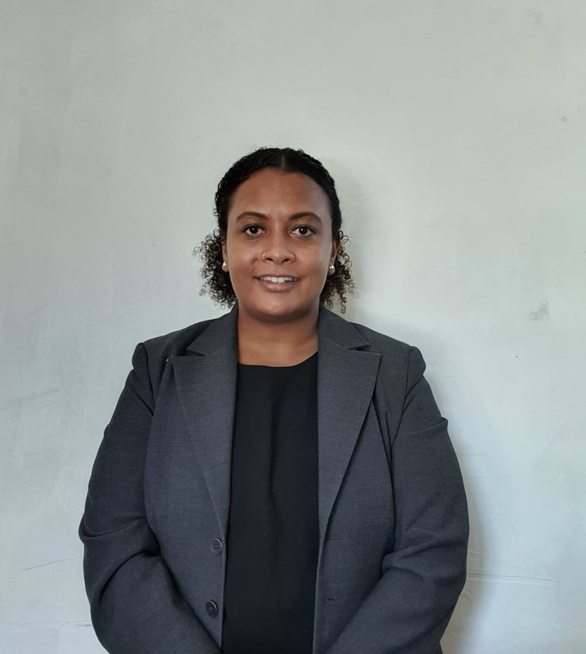
Louchrisha Hussain
Director
Citizens’ Constitutional Forum (CCF)
Louchrisha Hussain, born and raised in Fiji with maternal lineage to Nairai, Lomaiviti and paternal indo Fijian and Rotuman lineage. Attained a political science undergraduate degree from the Brigham Young University – Hawaii. Joined the Fiji civil society sector back in 2012 with the organisation – Pacific Centre for Peacebuilding getting involved in programme work, then moved to the Citizens Constitutional Forum (CCF) in 2015 and currently still with the CCF.
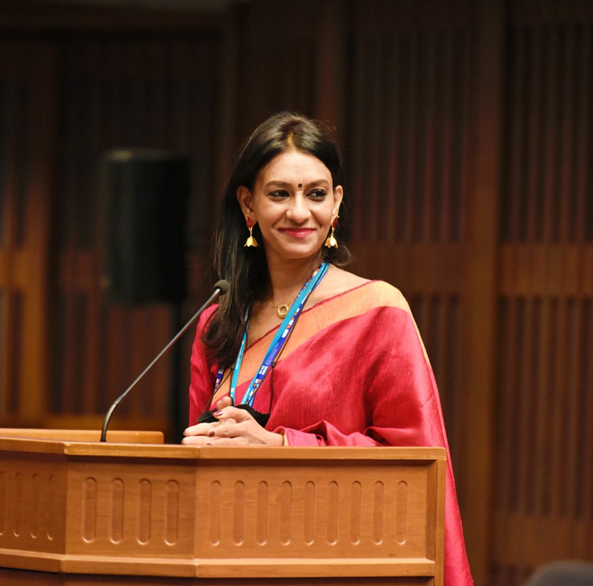
Harpreet Kaur
Business and Human Rights Specialist UNDP’s Regional Bureau of Asia and the Pacific
Harpreet oversees a regional project aiming to promote responsible business practices through partnerships in Asia. She provides technical and advisory support to governments and businesses on mitigating and addressing human rights risks and impacts in operations and supply chains in Asia. Previously, Harpreet led Genpact Centre for Women’s Leadership at Ashoka University, where she steered the Women, Workplace & Rights agenda and designed cutting-edge programs that enabled women to lead with equality and dignity. At the Business and Human Rights Resource Centre, Harpreet highlighted corporates’ human rights impacts through her research and writing. In her early years, Harpreet lead governance projects in the conflict-ridden Jammu and Kashmir in India using media and communication and supported the track-II diplomacy processes. Harpreet serves as a Council Member of the World Economic Forum Global Future Council on Human Rights.
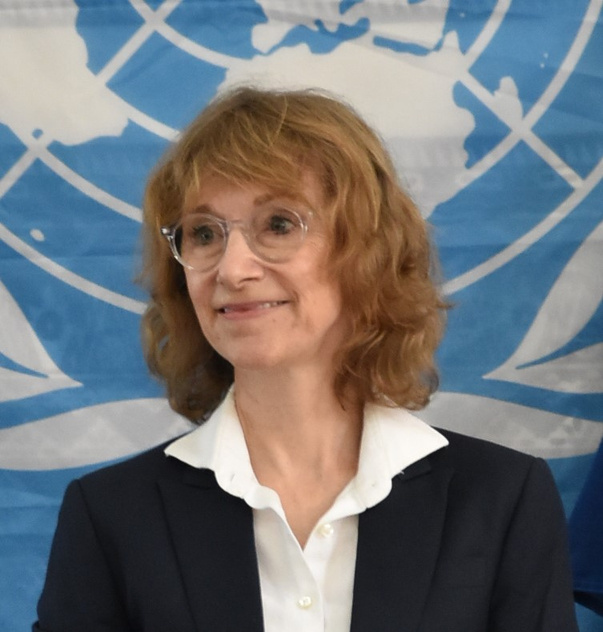
Ms. Heike Alefsen, Regional Representative for the Pacific
UN Human Rights (OHCHR)
Heike Alefsen has 30 years of human rights, legal, political and development work experience with the United Nations, the Council of Europe and civil society. As OHCHR Pacific Regional Representative since October 2020, she heads a Regional Office based in Suva, Fiji, covering 14 independent Pacific Island Countries, Australia and New Zealand.
For the past decade, she has worked in senior human rights advisory positions with the UN Country Team in Bangladesh, the UN Development Group Asia-Pacific in Bangkok, and as Deputy Head of the OHCHR Regional Office for South-East Asia where she established a country programme for Myanmar. At OHCHR HQ in Geneva, she coordinated policy, communications and information of the Human Rights Council’s independent special procedures. She worked with the UN Division for the Advancement of Women and the UN Development Fund for Women in New York and established the Office of the Council of Europe in Bosnia and Herzegovina, serving as Representative and at CoE HQ in Strasbourg. She started her professional career with Amnesty International’s Legal Office and Eastern Europe Research Department in London. Heike Alefsen holds an LL.M. in International Human Rights Law from the University of Essex in Colchester, UK, and an M.A. from the University of Mainz in Germany.
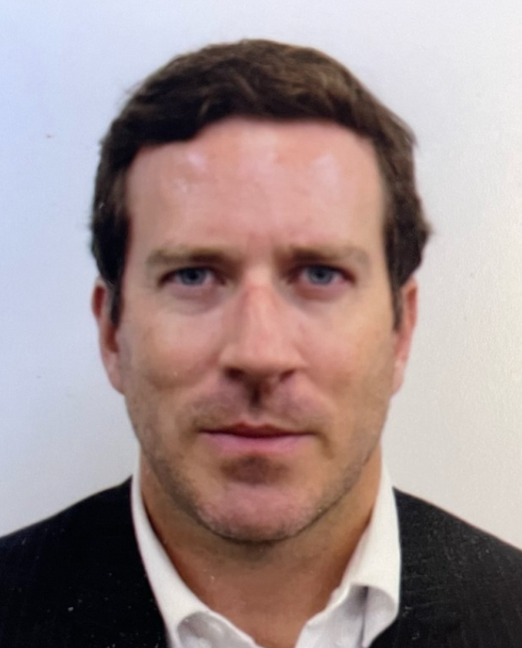
Philip Martin
Adviser on Environmental
Social Safeguards, Australian Infrastructure Financing Facility for the
Pacific (AIFFP), DFAT
Philip Martin works as Adviser, Impact & Safeguards for the Australian Infrastructure Financing Facility for the Pacific (AIFFP), a AUD4 Billion Australian Government initiative to support governments and the private sector in the Pacific and Timor-Leste to develop high quality energy, water, transport, telecommunications and other infrastructure projects. He has previously held senior international appointments with the World Bank, the European Bank for Reconstruction and Development (EBRD), Amnesty International, UN Office for Project Services (UNOPS) and UN Population Fund (UNFPA), and with Aboriginal community development organisations in Australia.
Philip has a PhD in anthropology and gender studies and has held lectureships at the University of Copenhagen, RMIT University, Singapore Institute of Management and the National University of Vietnam.
Darren Grant is a Chartered Accountant bringing over 30 years of commercial experience in finance, project management and human resources to our team. Through a career that commenced with KPMG before gaining international experience with a listed technology company in the UK, Darren’s broad industry experience has progressed to supporting Boards and Board Committees across mining & exploration, emergency services, and independent education. His strategic experience has been established on Finance, Audit, Risk & Compliance, Building & Infrastructure Committees and his capacity to develop high functioning teams across diverse disciplines.
With financial and operational oversight of large capital works, Darren offers strong expertise to co-ordinate the mine development and resource management in his role as Country Manager (Fiji).
Darren holds a Bachelor of Business (Accounting) degree, was conferred as a Chartered Accountant in Australia in 1993 and is also a Member of the Australian Institute of Company Directors having undertaken the Company Directors Course in 2019.
Forum secretariat
For general information related to the 2022 Forum (programme, sessions, speakers, participation), please contact Ms Ingvild Vetrhus, human rights specialist, OHCHR Regional Office for the Pacific: ingvild.vetrhus@un.org
For administrative assistance (logistics, invitation letters, travel information, etc.), please contact Ms Samita Singh, Administrative Associate, OHCHR Regional Office for the Pacific: samita.singh@un.org
